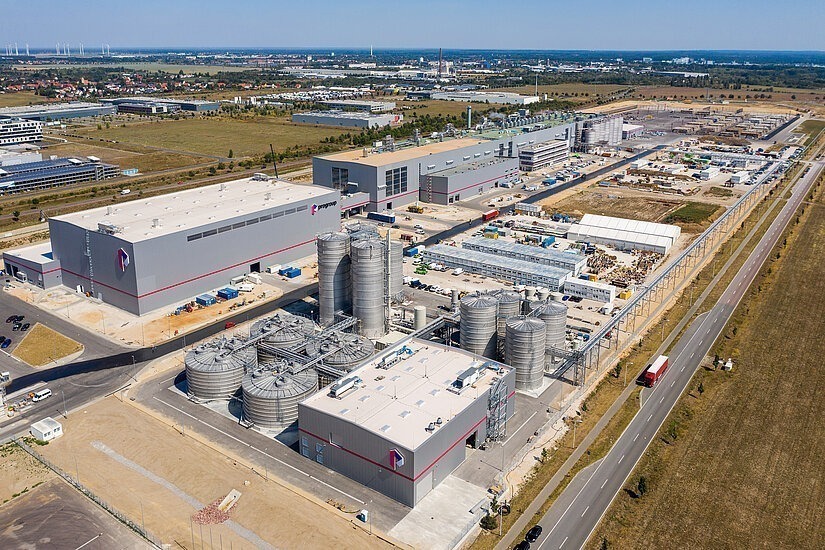Progroup’s waste-to-energy plant produces 50% of electricity to power PM2 recycled containerboard mill in Brandenburg, Germany; construction underway on Progroup’s next w-t-e plant at PM3 in Sandersdorf-Brehna, as company aims to be carbon neutral by 2045.
Progroup demonstrates how consistent recycling can succeed at its site in Brandenburg. The company does not just manufacture extremely sustainable recyclable papers at this site. The fact that it has its own waste-to-energy power plant results in a completely zero-waste concept.
Around 650,000 tonnes of containerboard leave the state-of-the-art PM2 paper factory every year. These products are in particular papers that Progroup has developed itself, known as Next Fibre products. They are produced exclusively using recovered paper without any fresh fibre being added. They are much lighter compared to customary papers in the market and yet are extremely high-performing – a material advantage that is evident during transport, for example, and saves CO2. And once they have been used, they can be fully recycled as recovered paper.
“As a family company, we have an obligation to the generations to come. This is why we aspire to handle resources responsibly,” says Maximilian Heindl, CEO of Progroup. “This is reflected both in our sustainable papers and the way they are produced.” Progroup relies on innovative high-tech machines to manufacture products in an extremely eco-friendly and efficient way.
Independent energy supply thanks to own waste-to-energy power plant
The energy required for papermaking is supplied from the waste-to-energy power plant next door. It thermally utilises what are known as rejects – waste materials from paper production and also from industry – and then supplies PM2 with all the hot steam it needs. The power plant also produces electricity. The amount of electricity produced is equivalent to roughly 50 per cent of the power that PM2 requires. This allows Progroup to reduce the use of fossil fuels and save a lot of CO2.
“In the current situation, where we are facing exponential rises in energy costs and debates about a premature move away from coal, it is once again evident that we urgently need sustainable solutions that will give us an independent energy supply and also help us to make progress when it comes to climate change,” says Woidke. “With the pioneering zero-waste concept here at this site, Progroup is making an important contribution to this.”
The company has operated its PM2 paper factory in Eisenhüttenstadt since 2010. The power plant started operating one year later. A total of 750 million euros were invested in the two projects and the company created around 200 state-of-the-art jobs. “This makes Progroup a strong economic force,” says the State Premier, “and a great asset for the region.”
In order to champion the idea of recycling even more and continue to reduce the use of fossil fuels, Progroup is already transferring the zero-waste concept that has been so successful in Brandenburg to its next site: Construction of the next power plant is just beginning next to the PM3 paper factory in Sandersdorf-Brehna. The company will be completely carbon-neutral by 2045.
About Progroup
Progroup AG, located in Landau, Germany, is one of the leading manufacturers of containerboard and corrugated board in Europe. Since it was founded in 1991 in Offenbach/Queich, the company has been pursuing a consistent growth strategy which, in addition to technological leadership, is also based on the use of innovative and environmentally friendly production technologies. Progroup operates production sites in six countries in Central Europe. These currently include three paper factories, twelve corrugated sheetfeeder plants, a logistics company and a waste-to-energy power plant. With 1,554 employees, the company generated sales of around 1.3 billion euros in 2021.




